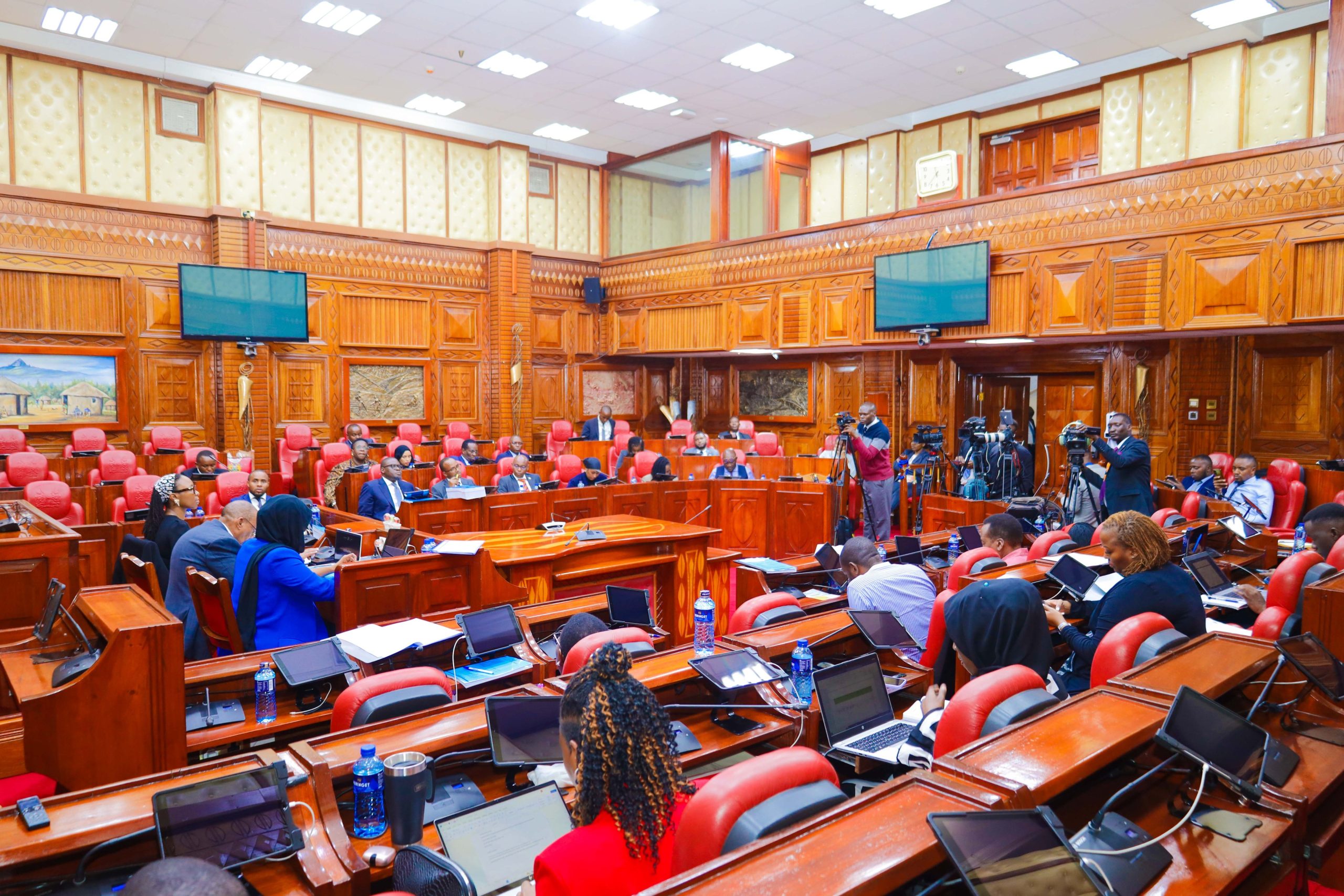By The Weekly Vision Team
A proposal by the Nairobi County Government to secure a short-term loan to pay staff salaries has triggered a wave of criticism within both the County Assembly and the Senate, with leaders accusing Governor Johnson Sakaja’s administration of attempting to circumvent transparency and accountability procedures.
The controversy erupted after Members of the County Assembly (MCAs) discovered that the motion seeking approval for the loan lacked fundamental details, including the loan amount, repayment terms, and the name of the bank expected to advance the funds.
In a letter dated 13th November 2025, County Executive Committee Member for Finance and Economic Planning, Charles Kerich, requested the Assembly’s approval under Section 142 of the Public Finance Management Act, 2012. He argued that the borrowing was strictly for cash-flow management to address delayed salaries and outstanding payments to contractors. “The borrowing shall not exceed five per cent of the last audited revenues and shall be paid within a year,” Kerich wrote, urging swift approval to “avoid any disruption to County operations”.
When Majority Leader Peter Imwatok tabled the motion, MCAs from across the political divide expressed outrage over the vagueness of the proposal.
Ngara Ward MCA Chege Mwaura accused the Executive of attempting to reduce the Assembly to a ceremonial body. “We don’t have the content in the statement. What are we passing? What is the exact amount they want to borrow? What are the terms? We do not want to be reduced to conveyor belts,” he said.
Minority Leader Anthony Kiragu demanded that the Assembly reject the incomplete submission outright, describing the papers as “useless” and non-compliant with the law.
Former Planning PS Irungu Nyakera was even more scathing, saying the governor was essentially seeking a blank cheque. “This is how Nairobi has been piling up debts and pending bills. Zero governance, zero oversight, and a system that keeps enabling reckless decisions at the expense of Nairobians,” he said.
The Speaker ruled that the Executive must provide all missing information before MCAs can decide whether to approve or reject the loan request.
The uproar comes only weeks after City Hall quietly shifted its primary accounts to Sidian Bank, a move that has raised questions among finance officers and elected leaders about its timing and necessity.
Meanwhile, the County Government Workers Union has sounded the alarm over repeated salary delays, including October salaries, which were only released on 18th November, despite Governor Sakaja’s promise that county staff would never experience such delays under his administration.
The row over Nairobi’s financial management intensified further on Monday, 24th November 2025, when a session of the Senate Committee on Devolution and Intergovernmental Relations descended into chaos. Nairobi Senator Edwin Sifuna and Kisii Senator Richard Onyonka stormed out of the meeting yesterday as they questioned Governor Sakaja over the county’s banking arrangements and suspected lapses in the management of public funds.
The committee had convened specifically to examine the county’s choice of banks, its handling of public finances, and growing concerns about delayed payments and opaque borrowing practices.Witnesses described the confrontation as tense and heated, with the senators accusing the governor of evasiveness and a lack of candour.
The dramatic walkout underscored the growing mistrust between the county administration and oversight institutions, signalling that Governor Sakaja’s financial stewardship, already under scrutiny from MCAs, now faces intense national-level examination. With the loan request stalled at the County Assembly, salaries delayed, county accounts controversially moved, and senators abandoning a parliamentary session in protest, Governor Sakaja now faces unprecedented pressure over his administration’s handling of Nairobi’s finances.
Stakeholders warn that unless transparency is restored and legal procedures are strictly followed, Nairobi risks plunging deeper into fiscal instability, to the detriment of workers, contractors, and residents who rely on uninterrupted county services.





